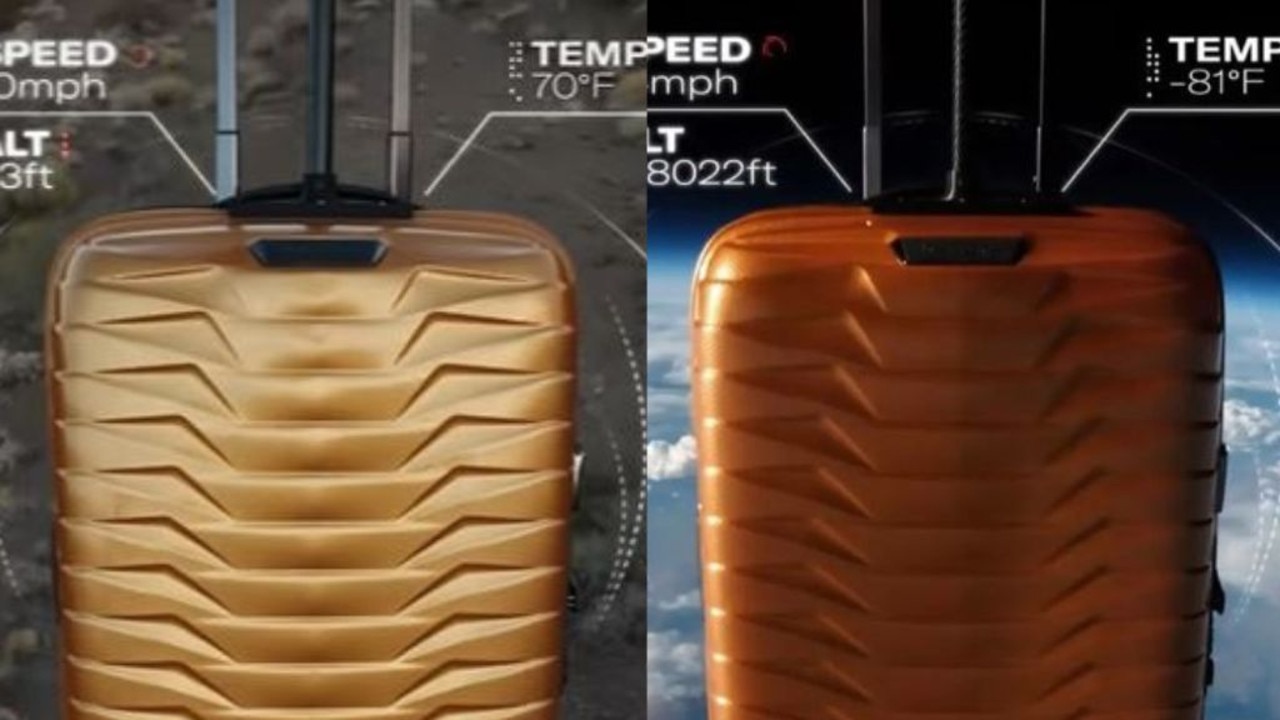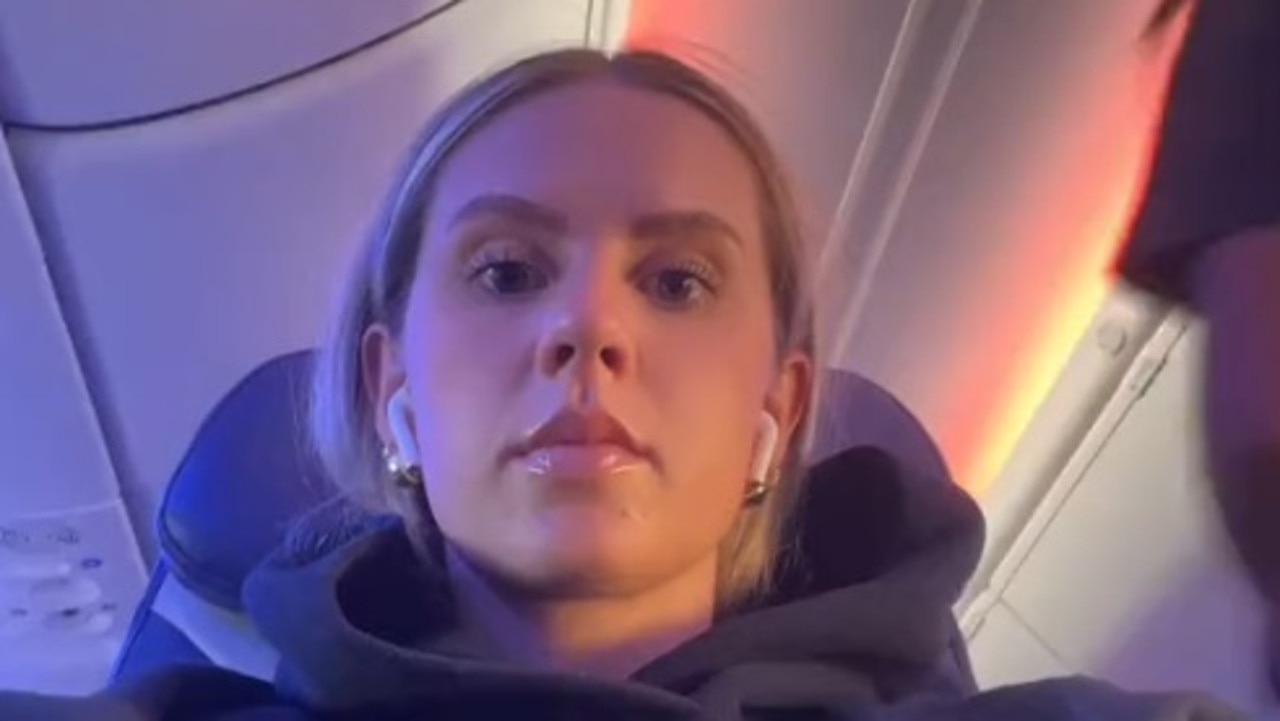Coronavirus: Australians stay in New York, London, Caracas rather than going home
Thousands of Australians have returned home since the coronavirus pandemic swept across the world. But these Aussies have stayed put.
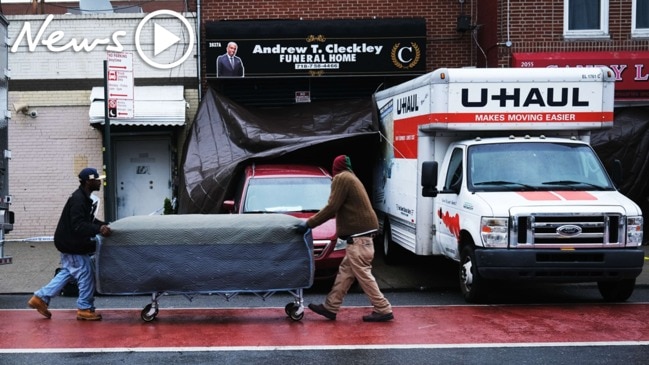
Thousands of Aussies have chosen to stay overseas rather than return home during the coronavirus pandemic.
Some have opted to stay put in cities that have become virus epicentres and fully expect to catch the disease.
Others are weathering the COVID-19 storm in developing nations without soap in their hospitals.
New.com.au spoke to three of these risk-taking Aussies, and their reasons might surprise you.
RELATED: Follow our live coronavirus updates here
RELATED: Exchange students stay in Argentina fearing safety in Australia
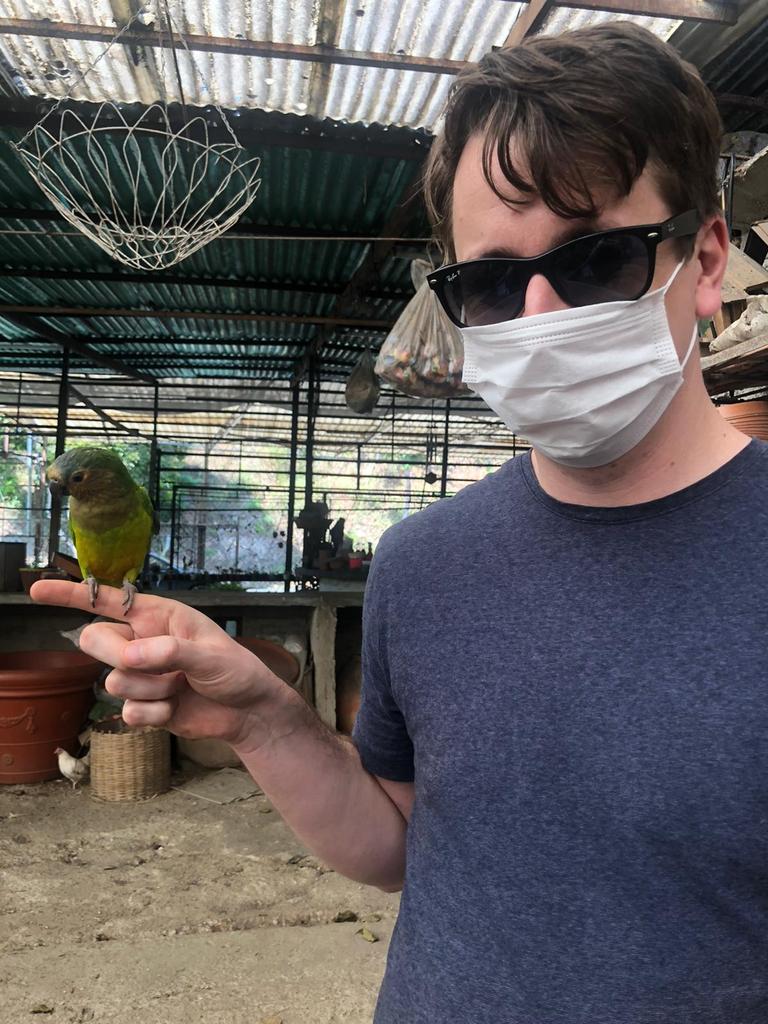
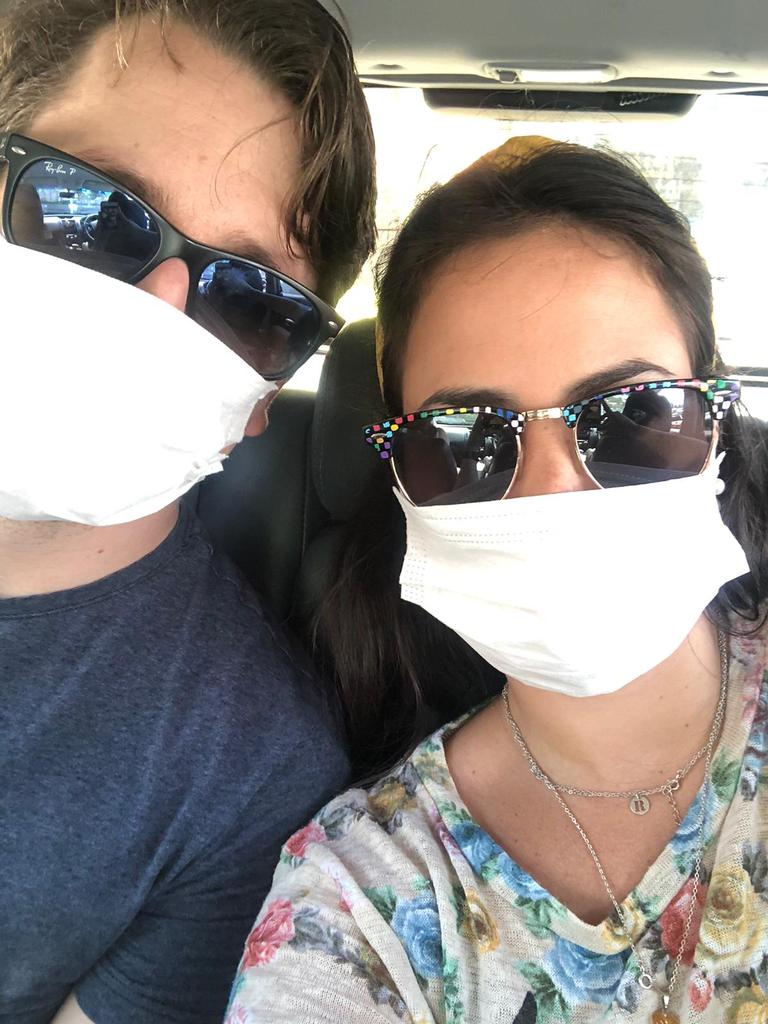
VENEZUELA: HOSPITALS WITH NO ACCESS TO SOAP
Although David McGilchrist is from Sydney, he’ll be staying in the capital city of Venezuela, Caracas, until the COVID-19 pandemic dies down.
“We decided to ride it out here,” the 34-year-old told news.com.au.
“Even though the health system is terrible – most hospitals don’t have soap, … The poor areas are seeing riots as petrol has run out across the country, and food prices have risen.”
Mr McGilchrist has had to adapt to a new world of danger.
“We stay in a gated neighbourhood, with high security fences and lock all windows and doors at night. “We don’t wear any jewellery out and when driving we avoid stopping at traffic lights whenever possible.
“Going through red lights is common.”
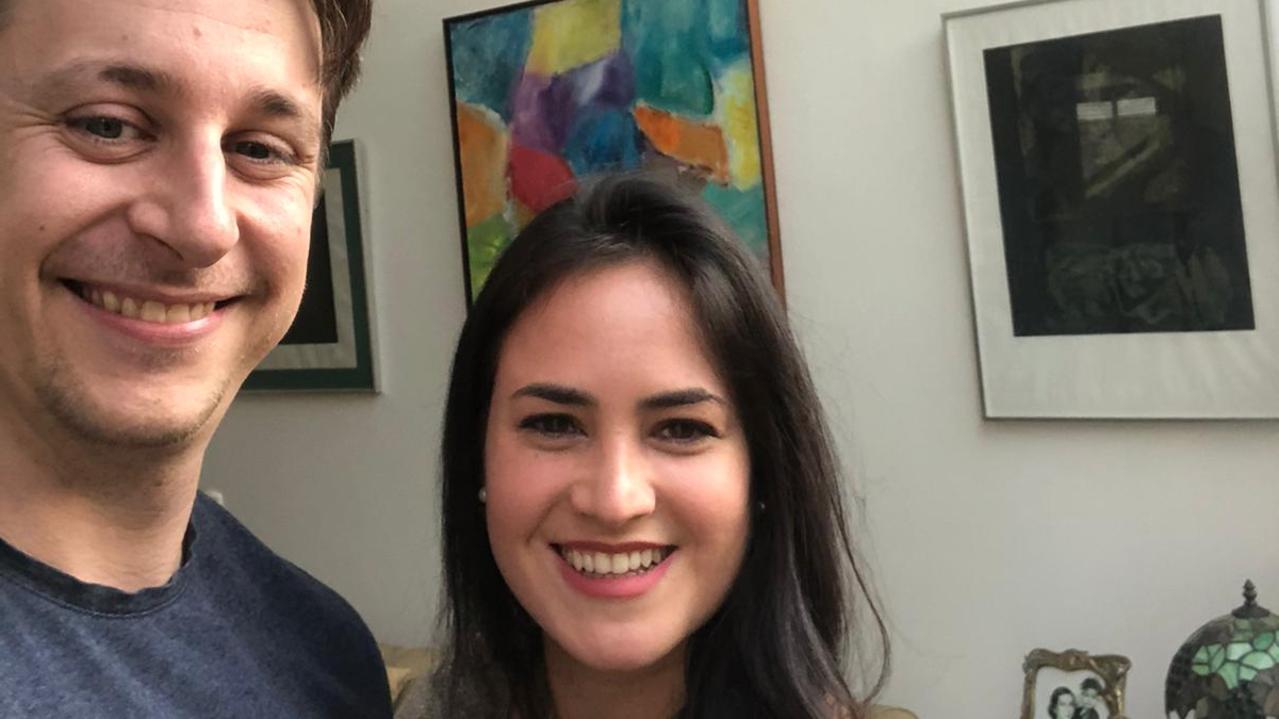
Crime and corruption is rife, and Mr McGilchrist is glad to have a girlfriend familiar with the area showing him the ropes.
“We have avoided any of the riots so far, although we have received warnings about increased numbers of break-ins in our area as a result of the financial hardships people are experiencing and the cost of basic food items.
“When we have driven around we have seen a heavy presence of the National Guard. They seem to act as President Maduros’ private army more than anything, so we do what we can to avoid them.”
There isn’t an Australian embassy in Venezuela.
“The only consular support available is through the Australian Consulate in Colombia, which has very limited information from the Venezuelan Government,” he said.
WHY STAY IN VENEZUELA?
When asked if he regretted the decision to stay, Mr McGilchrist was firm: “Considering the choices available, no.”
The crux of the issue was his girlfriend, Romina.
“My partner would not be permitted entry into Australia since we are not married and she does not have an Australian passport,” he said.
“Romina is Venezuelan, but holds a Spanish passport as well and we live in Madrid currently.
“I moved to Madrid for my MBA in 2018 and have stayed on with a residents visa after completing that.”
The couple arrived in Venezuela on March 12, a few days ahead of a friend’s wedding. But things quickly took a turn for the worse.
“We were one of the last flights to enter the country,” he said.
“Within two days, the government had ordered all restaurants to close and banned all public gatherings.
“So, with that and the fact that most of the guests couldn’t make it, the wedding and the pre-wedding celebrations have been postponed.”
If Mr McGilchrist was to return to Australia, then he would have to leave his partner behind. That wasn’t an option.
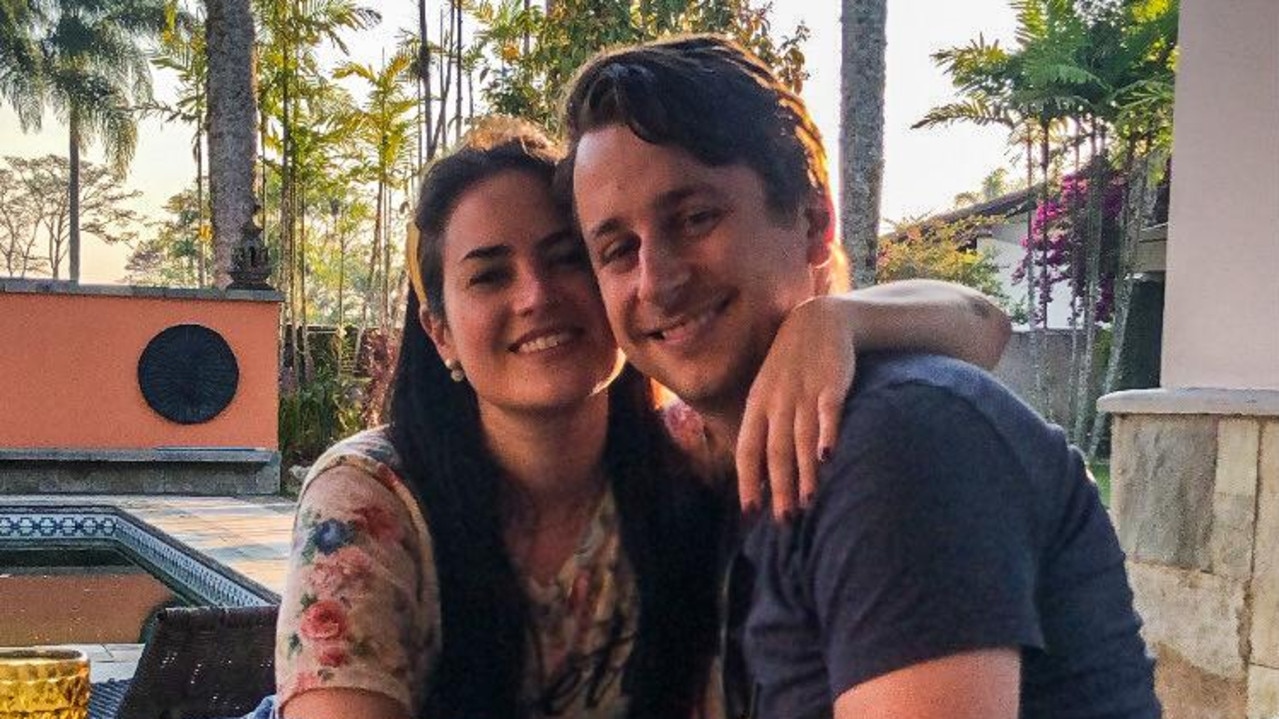
The couple considered flying home to Spain but ultimately decided against it.
“As we saw the pandemic take hold in Madrid we thought it was better for us to stay in Caracas rather than return.
“(In Spain), we live in an apartment with three guys and a dog, with only a small balcony. Talking with them and other friends in Madrid, it was clear that things were getting very bad there.
“The supermarkets were running out of basic supplies and the restrictions on movement were very tight. In comparison, in Venezuela, while many shops were closed, the supermarkets are well-stocked, we have a house and we are able to visit some friends here.”
Mr McGilchrist now lives in a spacious house in an area called El Hatillo in Caracas, having moved in with Romina and her mother.
He runs his start-up business from Venezuela now, and they must continue paying rent for an apartment they’re not even staying in.
CHOOSING A VIRUS EPICENTRE OVER AUSTRALIA
Virus epicentres like London and New York might be the last place on earth you want to be right now, but news.com.au spoke to two Aussies who chose to stay there rather than return home.
One of them was Melbourne writer Joshua Humphreys, who spoke to news.com.au from his apartment in London.
“The question for me was never, 'Why haven't you gone home?’ but always, ‘Why on earth would you go home?’” Mr Humphreys said.
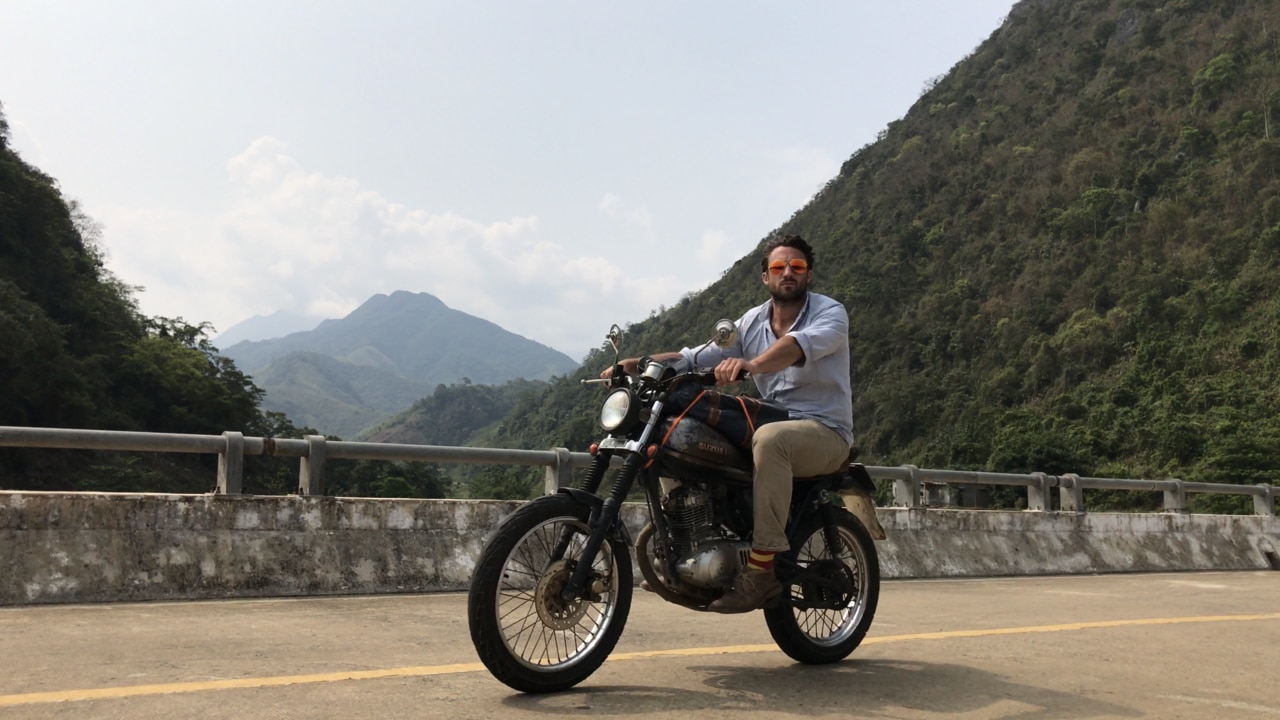
Mr Humphreys said his “so-very-distant home" of Australia had been turned into “something of an unwelcoming and irrational fortress”.
“Two weeks' mandatory detention of Australian citizens,” he said.
“The outlawing of social interaction. Not being able to travel until 2021. Near-bankruptcy from a single one-way flight.”
For him, the decision to stay away from home was obvious.
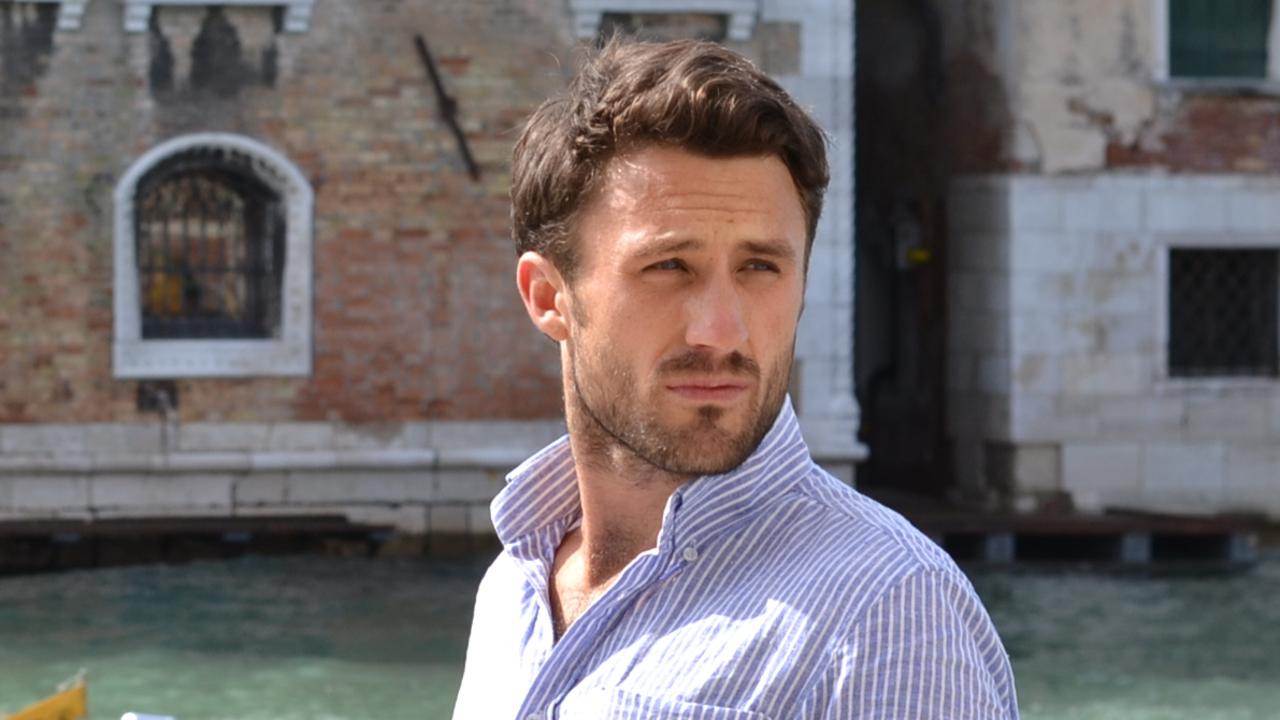
“For the last four years I have travelled modestly on the sales of my books while writing new ones,” Mr Humphreys said.
“I was in Bangkok in February and planned to spend the northern spring and summer in Mexico after visiting friends in New York.
“Coronavirus had just set in Asia and I got to Manhattan, New York, for the last week of February.
“Australia was making international news for panic-buying toilet paper (whereas) bars in New York were still open and raging and there was no whisper at all of a global shutdown.”
Mr Humphreys refused to let the virus disrupt his travel plans, and doggedly headed on to Mexico. On his way over, he witnessed an empty JFK airport in Queens, New York.
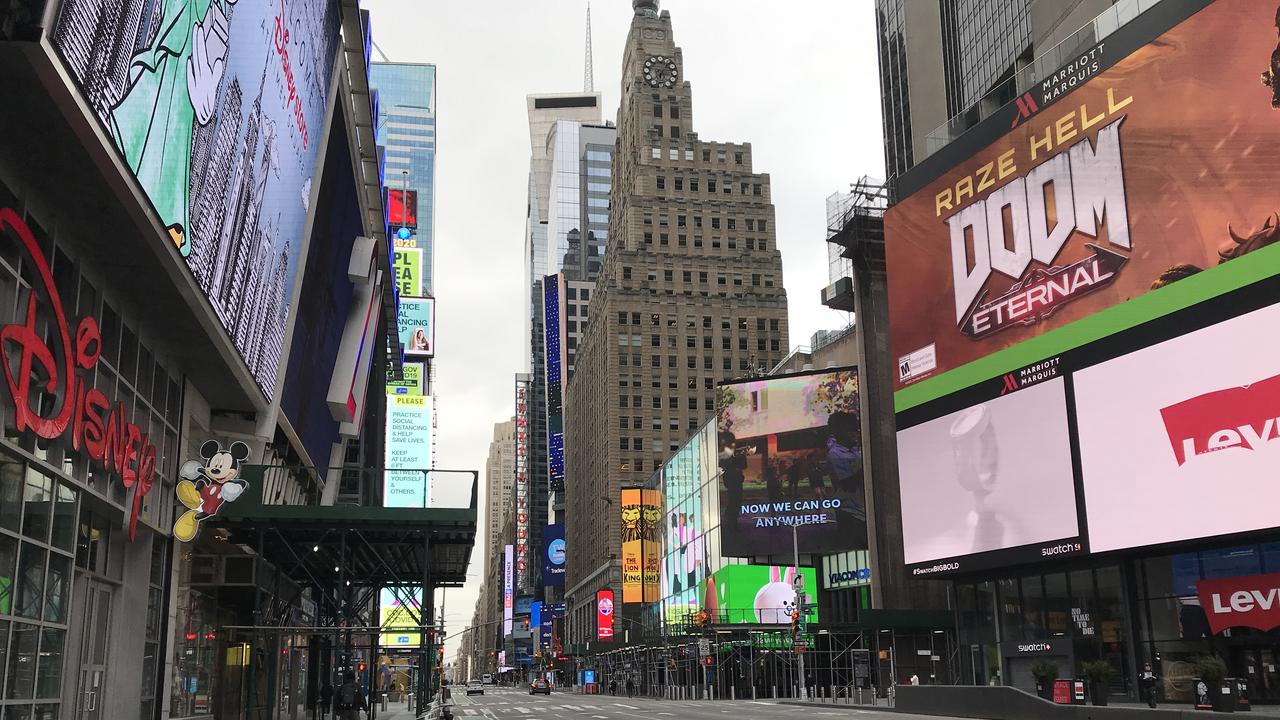
“For the first week everything was as normal in Mexico,” he said.
“The week after, businesses began to shutter and bars (had) to close and I was told by someone working in tourism that if the industry disappeared, tourists staying behind would become targets for robbery by those who had lost their jobs.
“I, that weekend, had my wallet stolen and with it all access to money. With only an emergency $100 in my luggage I had no choice but to leave Mexico.”
But returning home appeared a bad option.
“Flights to Melbourne from Mexico had gone up to around $3000 and become 50-hour transits and the federal government had banned all flights out of Australia indefinitely,” he said.
“Then the mandatory hotel quarantine was introduced, and was the nail in the coffin of my returning home.”
Instead, he headed to London, despite the news of rising death tolls. And he couldn’t be happier.
“I divide my year between Italy, Vietnam, and London. Overseas is my default state (anyway) and I usually only come home for Christmas,” he said.

“A $3000 hit to the bank account, then the cost of getting back to where I need to be for work, if travel restrictions were ever lifted, would have put something of a dint in my ability to write the next novel,” Mr Humphreys went on.
“Europe begins easing their lockdowns next week so I'll be able to live and travel freely much sooner here than I would in Australia.
“I also give an art and history tour of Venice and a history and philosophy tour of Athens each year, and they require my being in Europe in the autumn. These might not have been possible had I returned to Australia.”
NEW YORK: GROUND ZERO WITH MASSIVE MEDICAL FEES
Kris Skandakumar, originally from Melbourne, is in the thick of things in New York, but he maintains, “It’s worked out pretty well at the moment.”
A lawyer from the Lower East Side, Mr Skandakumar told news.com.au he was “weighing up the decision of going to Australia” in early March, and ultimately decided to stay.
The Aussie stayed fully expecting he would catch COVID-19.
“Because of the close proximity that you’re in with everyone — the area is smaller than Melbourne and Sydney — if one person gets it you kind of expect to get it too.”
Indeed, Mr Skandakumar came down with mild symptoms and his girlfriend, a nurse, reckoned it was COVID-19. His roommate also had similar symptoms.
“Ten close mates got it too. Two of my other mates think they got it.
“But there’s no way to tell unless we get tested.”
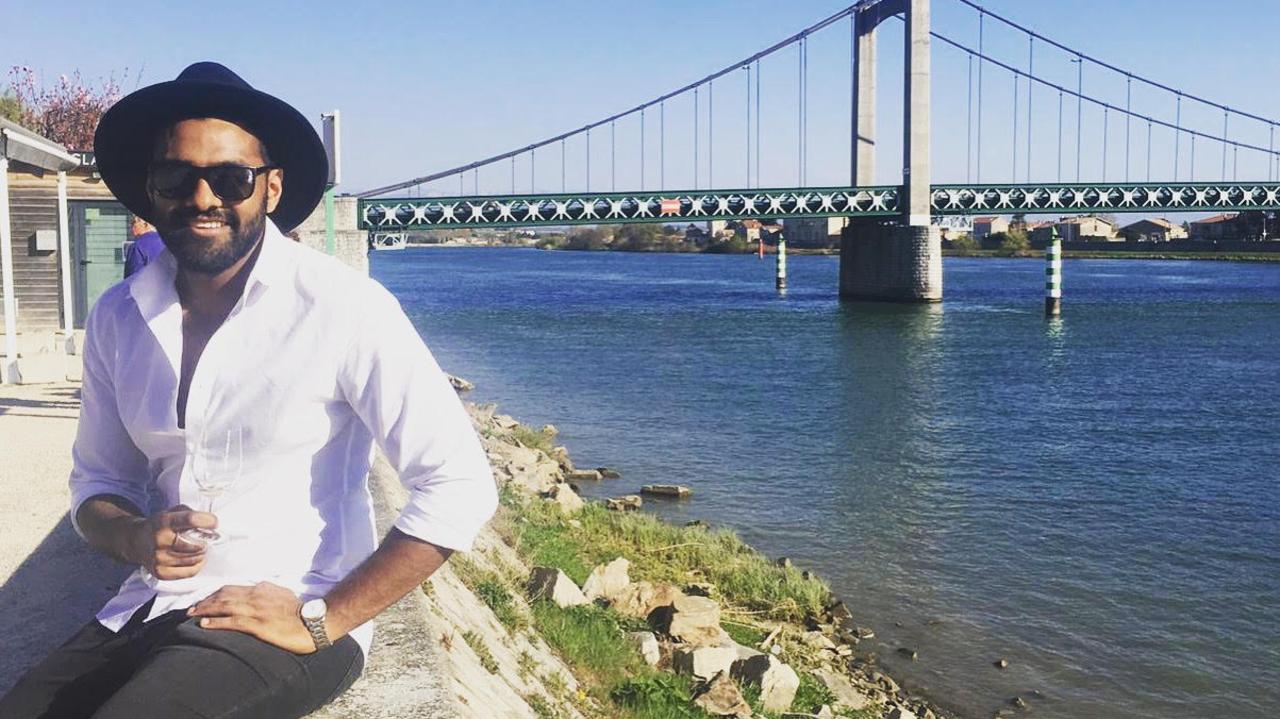
Getting tested in New York is harder than it sounds, according to the stranded Aussie.
Mr Skandakumar’s room-mate went into the emergency department hoping to be tested for COVID-19 and ended up having to pay $US9000.
“The health system is very different to an Australian hospital. My mate turned up, asked to be tested. They took some blood, didn’t even give him a (coronavirus) test. Then a few weeks later he got the invoice for all that money.”
While Australia’s curve is flattening, New York still has piles of bodies rotting in the streets.
“What’s going on at home makes me a little bit jealous,” Mr Skandakumar admitted.
“People in Australia can get tested (for COVID-19) if they need it. But it’s a different reality for us. News out of New York is pretty bleak.”
The worst part of being in New York is the apartment sizes, according to the Aussie expat.
“In the apartment it’s so small, a lot of us were contemplating whether we should go home just because of that,” he said.
SO WHY STAY IN NEW YORK?
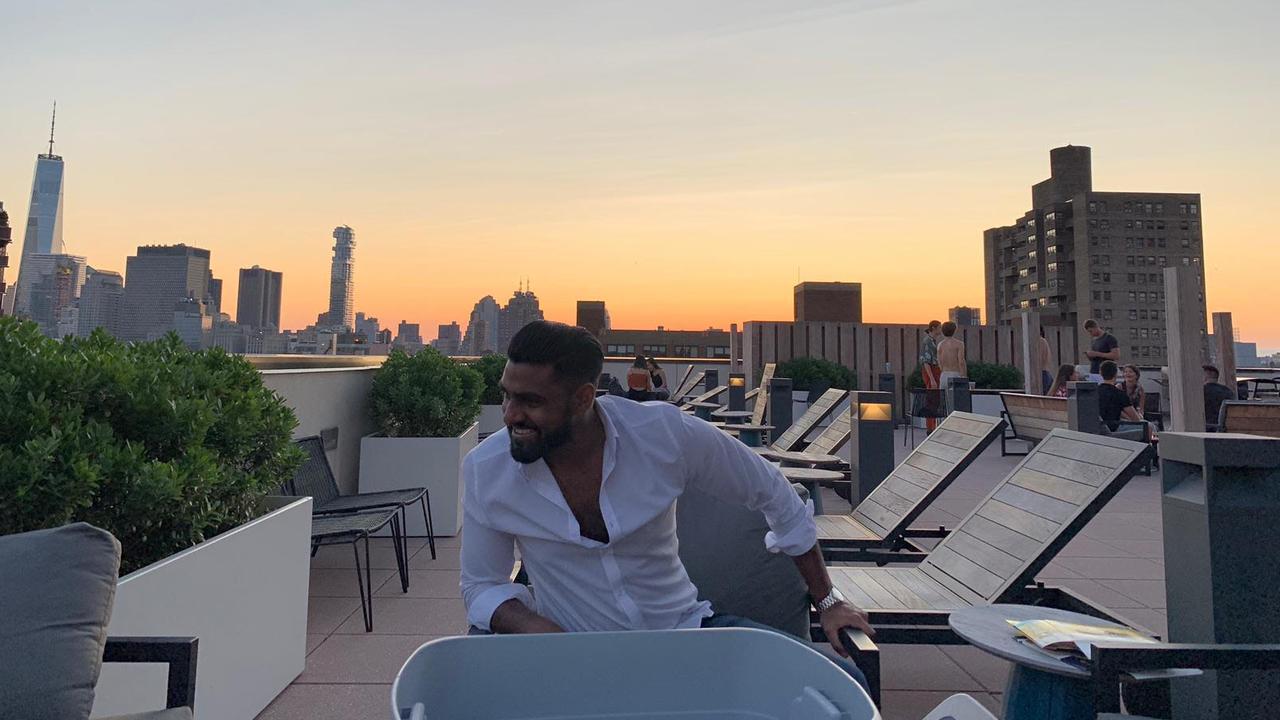
Mr Skandakumar has a very personal reason for wanting to stay: his girlfriend is a nurse, and he wants to support her in whatever way he can.
“She’s American, I met her over here. She’s a healthcare worker. Now is the time for her to help, not for me to leave.”
Some of his friends have been laid off but he’s still got a job.
“For me it’s not so bad because I'm still working. If I went home to Australia, I’d still have to work (my New York job), but I’d just be getting up at weird hours. So I may as well stay here.”
“It doesn't matter what industry you’re in, work’s drying up,” he added. “I'm here on a visa, so if I get laid off then that’s it, I’m out of the country.”
He hopes that doesn’t happen, as his girlfriend needs him now more than ever.

Mr Skandakumar is frustrated with the two-week quarantine rule in Australia. If something happens to his family back home, it will take him a minimum of three weeks to see them, he said.
“There’s no way you can be there in 48 hours, you just can’t,” he said.
“When you get to Australia, you’ve got to spend two weeks in quarantine, so even if something happens it’s going to be a while before you can see a sick family member.”
Continue the conversation | alex.turner-cohen@news.com.au | @AlexTurnerCohen


